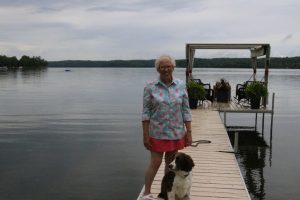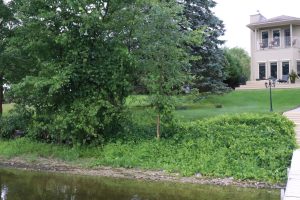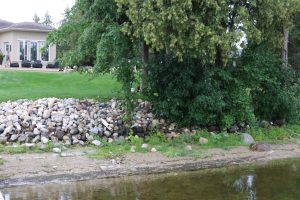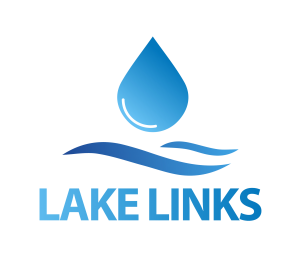by Monica Seidel, Digital Communications and Marketing Intern
Judy Hall, a President of the Dalhousie Lake Association, sat down to talk about the importance of engagement and a sense of community when it comes to the long-term health of lake associations and the waters they care for.
Answers have been edited for clarity and length.

Q: How did you become interested in Dalhousie Lake and the lake association?
A: I have been around the lake all my life and now have become very invested. The lake association builds a feeling of community on the lake and also acts as a liaison with other agencies to contact people. John, my husband, and I help collect water samples two times a year from four spots on the lake. We share the data that is collected, in particular, the E. coli and phosphorous levels found in the lake water.
Q: Has shoreline restoration been important on your property?
A: We have learned so much since we first started living here eighteen years ago. We have worked with the help of Watershed Canada’s (WC) Natural Edge program to restore the shoreline back to a more natural state. At this time, 50% of our property is naturalized, with about 50% now remaining due to some loss. We have experienced some shoreline erosion in the past few years with the high spring floods. The more naturalized side of our shoreline has held up more than the more manicured side.


Left: more naturalized side of Judy’s shoreline; Right: more manicured side of Judy’s shoreline featuring rip rap.
Q: What native species call your shoreline home?
A: Through WC’s Natural Edge program, I remember we planted many native species on our property, including dogwood. In terms of native animal species on and around the property, we see loons, herons, deer, muskrats, bald eagles, and osprey.
Q: What do you find is the biggest struggle for your lake association?
A: Many owners are relaxing from their everyday lives and responsibilities when they come up to the cottage for the weekend so they do not want to then volunteer some more. Volunteerism is down overall. We find it difficult for people to take leadership and ownership for organizing events like community barbecues and fun days.
Q: What victories have you seen on Dalhousie Lake?
A: Property owners on the lake want to know why there is such high fluctuation in the water levels. We were able to organize dam tours so people could understand difficult it is to manage the water system here. With these dam tours, we saw less people calling the conservation authority because they understood the water system more.
Q: What would you like to see for the future of your lake?
A: I would like to see everyone work to protect the lake and leave a smaller ecological footprint on the water and shoreline. If people can see the value in something, they will get involved. I hope there is an increase in education so people can enjoy their property while also knowing they are doing the right thing for nature.
Q: How did you hear about WC? Why have you stayed involved with them for so many years?
A: I first interacted with WC at a Lake Links event and through the Lake Networking Group. All of my interactions with the WC staff have been positive experiences – they are down-to-earth, friendly, non-judgemental, and accommodating.
Q: Why do you like attending Lake Links each year?
A: I feel like I am a part of something larger when attending this conference. To be around like-minded people and see what other resources and programs are available across the province helps remind me that I am not working in isolation.
____________________________________________________________________________________________________

Lake Links attracts citizens and scientists to share ways we can help sustain our lakes and rivers. Join us for the 18th Annual Lake Links workshop to learn about the many citizen science initiatives available to you. Join keynote speaker, Kat Kavanaugh of the Water Rangers, for this year’s theme: Enhancing, Restoring & Exploring: Applications for Citizen Science on Your Lake. Hear from local lake associations about projects they have initiated on their lakes. Representatives and displays from local environmental groups will be on-hand to answer questions.
Lake Links will be held on Saturday October 26th, 2019 at the Perth Civitan Hall. Purchase tickets here.
